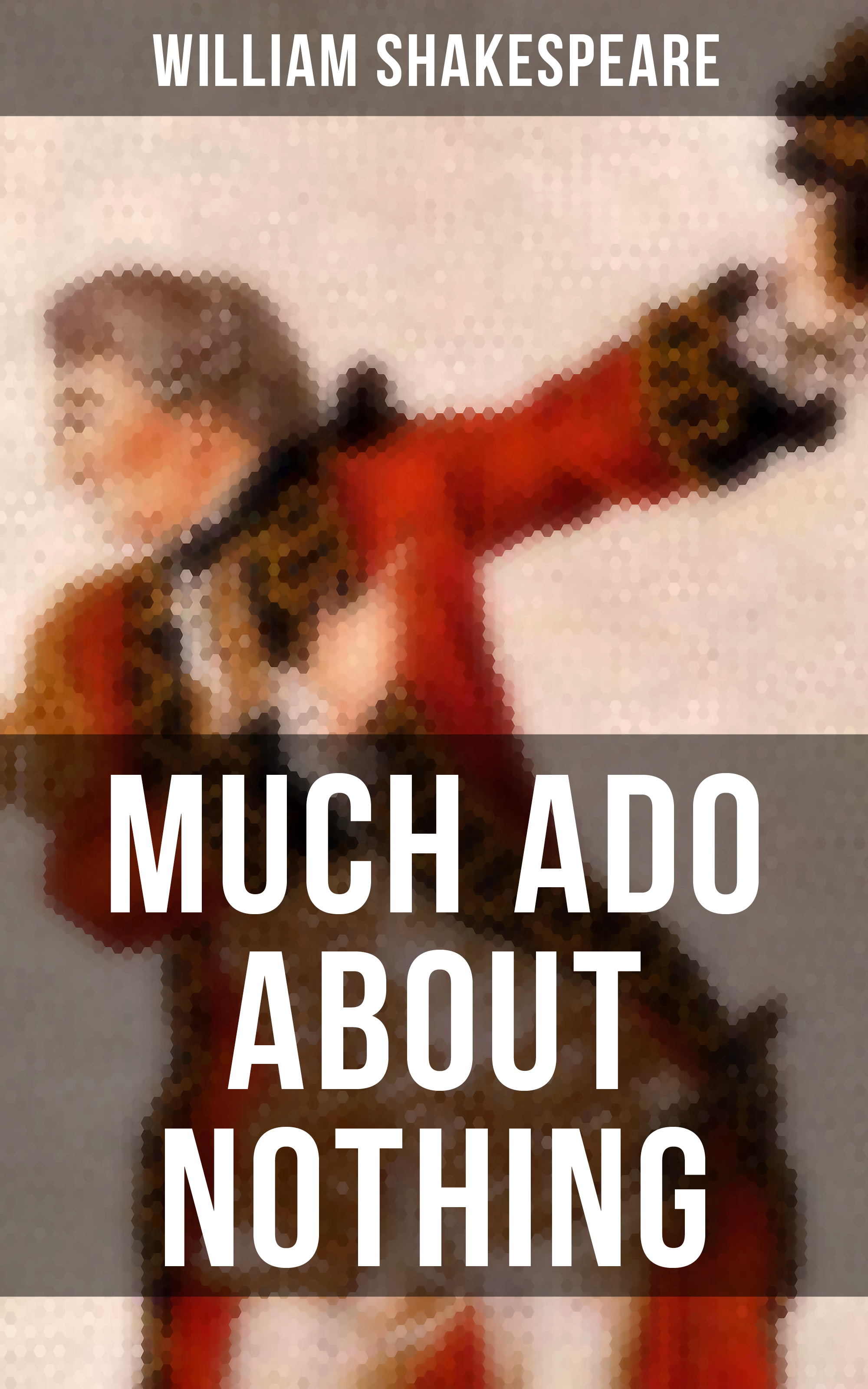[Exeunt.]
Scene 4. A Room in LEONATO’S House.
[Enter HERO, MARGARET, and URSULA.]
HERO.
Good Ursula, wake my cousin Beatrice, and desire her to rise.
URSULA.
I will, lady.
HERO.
And bid her come hither.
URSULA.
Well.
[Exit.]
MARGARET.
Troth, I think your other rabato were better.
HERO.
No, pray thee, good Meg, I’ll wear this.
MARGARET.
By my troth’s not so good; and I warrant your cousin will say so.
HERO.
My cousin ‘s a fool, and thou art another: I’ll wear none but this.
MARGARET.
I like the new tire within excellently, if the hair were a thought
browner; and your gown ‘s a most rare fashion, i’ faith. I saw the
Duchess of Milan’s gown that they praise so.
HERO.
O! that exceeds, they say.
MARGARET. By my troth ‘s but a nightgown in respect of yours: cloth o’ gold, and cuts, and laced with silver, set with pearls, down sleeves, side sleeves, and skirts round, underborne with a blush tinsel; but for a fine, quaint, graceful, and excellent fashion, yours is worth ten on’t.
HERO.
God give me joy to wear it! for my heart is exceeding heavy.
MARGARET.
‘Twill be heavier soon by the weight of a man.
HERO.
Fie upon thee! art not ashamed?
MARGARET. Of what, lady? of speaking honourably? is not marriage honourable in a beggar? Is not your lord honourable without marriage? I think you would have me say, ‘saving your reverence, a husband:’ an bad thinking do not wrest true speaking, I’ll offend nobody. Is there any harm in ‘the heavier for a husband’? None, I think, an it be the right husband and the right wife; otherwise ‘tis light, and not heavy: ask my Lady Beatrice else; here she comes.
[Enter BEATRICE.]
HERO.
Good morrow, coz.
BEATRICE.
Good morrow, sweet Hero.
HERO.
Why, how now? do you speak in the sick tune?
BEATRICE.
I am out of all other tune, methinks.
MARGARET. Clap’s into ‘Light o’ love’; that goes without a burden: do you sing it, and I’ll dance it.
BEATRICE. Ye, light o’ love with your heels! then, if your husband have stables enough, you’ll see he shall lack no barnes.
MARGARET.
O illegitimate construction! I scorn that with my heels.
BEATRICE. ‘Tis almost five o’clock, cousin; ‘tis time you were ready. By my troth, I am exceeding ill. Heigh-ho!
MARGARET.
For a hawk, a horse, or a husband?
BEATRICE.
For the letter that begins them all, H.
MARGARET.
Well, an you be not turned Turk, there’s no more sailing by the star.
BEATRICE.
What means the fool, trow?
MARGARET.
Nothing I; but God send every one their heart’s desire!
HERO.
These gloves the Count sent me; they are an excellent perfume.
BEATRICE.
I am stuffed, cousin, I cannot smell.
MARGARET.
A maid, and stuffed! there’s goodly catching of cold.
BEATRICE. O, God help me! God help me! how long have you professed apprehension?
MARGARET.
Ever since you left it. Doth not my wit become me rarely!
BEATRICE.
It is not seen enough, you should wear it in your cap. By my troth,
I am sick.
MARGARET. Get you some of this distilled Carduus Benedictus, and lay it to your heart: it is the only thing for a qualm.
HERO.
There thou prick’st her with a thistle.
BEATRICE.
Benedictus! why benedictus? you have some moral in this Benedictus.
MARGARET. Moral! no, by my troth, I have no moral meaning; I meant, plain holy-thistle. You may think, perchance, that I think you are in love: nay, by’r lady, I am not such a fool to think what I list; nor I list not to think what I can; nor, indeed, I cannot think, if I would think my heart out of thinking, that you are in love, or that you will be in love, or that you can be in love. Yet Benedick was such another, and now is he become a man: he swore he would never marry; and yet now, in despite of his heart, he eats his meat without grudging: and how you may be converted, I know not; but methinks you look with your eyes as other women do.
BEATRICE.
What pace is this that thy tongue keeps?
MARGARET.
Not a false gallop.
[Re-enter URSULA.]
URSULA. Madam, withdraw: the prince, the count, Signior Benedick, Don John, and all the gallants of the town, are come to fetch you to church.
HERO.
Help to dress me, good coz, good Meg, good Ursula.
[Exeunt.]
Scene 5. Another Room in LEONATO’S House
[Enter LEONATO and DOGBERRY and VERGES.]
LEONATO.
What would you with me, honest neighbour?
DOGBERRY. Marry, sir, I would have some confidence with you, that decerns you nearly.
LEONATO.
Brief, I pray you; for you see it is a busy time with me.
DOGBERRY.
Marry, this it is, sir.
VERGES.
Yes, in truth it is, sir.
LEONATO.
What is it, my good friends?
DOGBERRY. Goodman Verges, sir, speaks a little off the matter: an old man, sir, and his wits are not so blunt as, God help, I would desire they were; but, in faith, honest as the skin between his brows.
VERGES. Yes, I thank God, I am as honest as any man living, that is an old man and no honester than I.
DOGBERRY.
Comparisons are odorous: palabras, neighbour Verges.
LEONATO.
Neighbours, you are tedious.
DOGBERRY. It pleases your worship to say so, but we are the poor duke’s officers; but truly, for mine own part, if I were as tedious as a king, I could find in my heart to bestow
